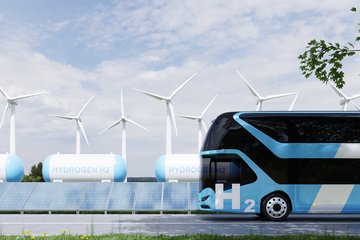All genres
441.
Talk
Optical properties of polar and nonpolar III-nitride quantum dots. workshop "Physics of nitride-based nanostructured light-emitting devices", Bremen, Germany (2009)
442.
Talk
Thermodynamics of high-Mn steels from ab initio theory. Workshop of the SFB761 "Steel - ab initio", Salzgitter, Germany (2009)
443.
Talk
First principles determination of phase transitions in magnetic shape memory alloys. 1st International Conference on Material Modeling, Dortmund, Germany (2009)
444.
Talk
Stacking Fault Energies In Austenitic FeMn Alloys: An Ab Initio Study. Euromat 2009, Glasgow, UK (2009)
445.
Talk
First principles determination of phase transitions in magnetic shape memory alloys. Esomat 2009. The 8th European Symposium on Martensitic Transformations, Prague, Czech Republic (2009)
446.
Talk
First principles determination of phase transitions in magnetic shape memory alloys. Euromat 2009, Glasgow, UK (2009)
447.
Talk
Towards a first-principles understanding of the iron phase diagram. Euromat 2009, Glasgow, UK (2009)
448.
Talk
Wasserstoff in X-IP Stahl (ab initio): Einfluss von Defekten auf die Energetik und Dynamik von Wasserstoff in Manganstählen. X-IP Workshop, Duisburg, Germany (2009)
449.
Talk
First principles simulation of thermodynamic properties of iron and iron-based alloys. Thermec'2009. International conference on processing & manufacturing of advanced materials, Berlin, Germany (2009)
450.
Talk
The accuracy of first principles methods inpredicting thermodynamic properties of metals. XVIII International Material Research Conference, Cancun, Mexico (2009)
451.
Talk
Ab Initio Thermodynamics: Status, applications and challenges. The second Sino-German Symposium on “Computational Thermodynamics and Kinetics and Their Applications to Solidification”, Kornelimünster/Aachen, Germany (2009)
452.
Talk
First principles determination of phase transitions in magnetic shape memory alloys. 2nd Sino-German Symposium on Computational Thermodynamics and Kinetics and their Application to Solidification, Aachen, Germany (2009)
453.
Talk
Role of Atomistic Simulations in the Prediction of Thermodynamic Properties of Materials. Workshop on Multi-Scale Computational Materials Design of Structural Materials, POSCO international center, Pohang, South Korea (2009)
454.
Talk
The accuracy of first principles methods in predicting thermodynamic properties of metals. Asia Steel 2009, Busan, South Korea (2009)
455.
Talk
First Principles Predictions of Stacking Fault Properties in FeMn Alloys. Asia Steel Conference 2009, Busan, South Korea (2009)
456.
Talk
Wasserstoff in X-IP Stahl (ab initio) Einfluss von Defekten auf die Energetik und Dynamik von Wasserstoff in Manganstählen. X-IP Workshop, Dortmund, Germany (2009)
457.
Talk
Universal trends for the solubility of hydrogen in non-magnetic 3d transition metals derived from first principles. DPG Spring meeting, Dresden, Germany (2009)
458.
Talk
Ab initio up to the melting point: Anharmonicity and vacancies in aluminum. DPG Früjahrstagung, Dresden, Germany (2009)
459.
Talk
First principles determination of phase transitions in magnetic shape memory alloys. DPG Spring Meeting 2009, Dresden, Germany (2009)
460.
Talk
Effect of interstitial carbon on the magnetic structure of fcc iron: Towards an ab-initio understanding of austenitic steels. DPG Spring Meeting 2009, Dresden, Germany (2009)











